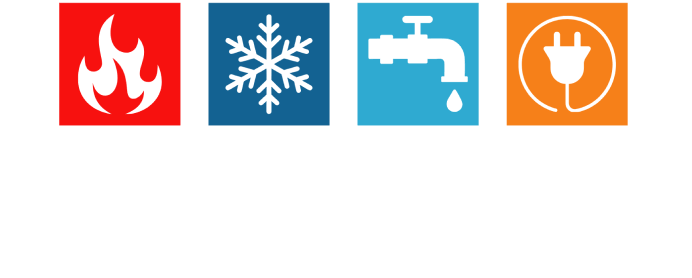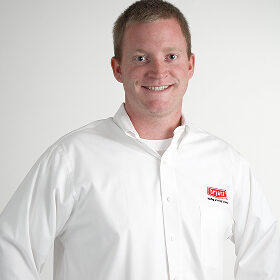You can’t control the weather in Lake Geneva, but you can control how comfortable your home feels through it. From brutal cold snaps to sweltering summer afternoons, a reliable HVAC system isn’t just nice to have; it’s essential for keeping life running smoothly. That’s where Peck & Weis Heating, Cooling, Plumbing, Electric in Lake Geneva, WI comes in, combining decades of experience with a hands-on local approach that puts your comfort first. When your heating or cooling starts acting up, you want a team that knows what works in real homes, not just what looks good on paper.
Every Home Starts With a Conversation
When you pick up the phone to talk about your HVAC system, what you want most is for someone to actually listen. You don’t want them to just nod and schedule a time, but understand what your home feels like. Maybe one room freezes while another bakes. Maybe your furnace rattles like it’s about to lift off. That’s where it all begins. It’s not with a product or a pitch, but with a real question: What’s not working the way you want it to?
That one answer can shape everything. A good team will slow down, ask the right follow-ups, and avoid throwing jargon at you just to sound smart. Your comfort doesn’t come from a brochure. It begins with someone noticing what’s unique about your space and how you inhabit it.
System Fit Matters More Than System Size
It’s easy to think bigger means better when it comes to HVAC. But when a unit is too powerful for the space, it short cycles. That means it starts and stops quickly, which wears out the system and leaves your home with uneven temperatures. On the flip side, a unit that’s too small runs constantly and still can’t catch up. Either way, you pay for it on your energy bill.
That’s why a proper load calculation matters. It’s not a guess, not a rule of thumb, but a careful measurement of your home’s size, layout, insulation, sun exposure, and even how many people live there. The right fit isn’t just about heating or cooling. It’s about maintaining stability, quietness, and efficiency. You shouldn’t have to pick between comfort and control. You can have both if your system matches your home’s rhythm.
Maintenance Isn’t Just About Avoiding Breakdowns
Tuning up your HVAC system should involve more than just checking filters and clearing debris. It’s about protecting the parts that work the hardest. Belts loosen. Coils clog. Refrigerant levels dip without notice. These are quiet shifts that slowly chip away at performance. You don’t always feel them right away, but your utility bill does.
And your system notices, especially during extreme weather. Seasonal maintenance helps catch these things before they snowball into a dead unit on a sweltering Saturday. However, it also maintains smooth and stable airflow. A fan that runs clean moves air more efficiently, which means rooms heat or cool faster. Every small fix adds up. When maintenance is handled by someone who knows the brand, the model, and its quirks, you end up with a system that’s not just surviving, but running like it should.
Indoor Air Quality Needs More Than a Filter
You might think the furnace filter is doing all the heavy lifting, but most homes need a little more help. Dust builds up in ductwork, especially if it hasn’t been cleaned in years. Add in pet dander, humidity, pollen, or even cooking fumes, and your air starts to feel thick. That’s when a basic filter stops making a dent.
A smart approach to indoor air quality doesn’t just trap particles; it balances the airflow, manages moisture, and reduces irritants you can’t always see. Maybe that means adding a whole-home humidifier. Maybe that means installing a UV light inside the system to target mold spores. Every house has different air problems. Some feel dry in winter and muggy in summer. Others carry strong smells that don’t leave. A technician who walks through your space, asks questions, and understands how air moves can recommend the right tools, not just the expensive ones.
Ducts Can Be the Hidden Troublemaker
You could have the best HVAC unit on the market, but you still feel uncomfortable if your ducts aren’t functioning properly. Leaky ductwork loses conditioned air before it ever hits your rooms. Poorly insulated ducts in crawlspaces or attics can undo your system’s work by heating or cooling the air along the way. Sometimes the problem is placement. Long runs, sharp turns, or crushed sections can slow things down or throw off the balance between rooms. And when one room never quite feels right, it’s often not the thermostat; it’s the ductwork.
Fixing ducts doesn’t always mean ripping everything out. It can be as simple as sealing weak points or adjusting vents. But someone has to inspect them thoroughly, not just glance and guess. When the airflow improves, so does your whole experience of comfort.
Zoning Adds Flexibility Without Adding Equipment
If your family disagrees on temperature, zoning might solve more arguments than you think. With a zoning system, you can heat or cool parts of your house separately. That means one thermostat can manage the upstairs while another focuses on the basement. You stop paying to heat empty rooms or cool the whole house for one person.
This setup works best when the design fits the layout. Not every home needs it, but many benefit from it, especially split-level houses or additions that don’t match the rest of the system. Zoning can involve dampers in the ductwork or separate thermostats, but the idea stays the same: more control where you need it. It also helps your equipment rest. If only one part of the house calls for heating, the system runs at a lower load. That cuts wear and keeps everything quieter.
Smart Thermostats Can Do More Than You Think
You’ve probably heard of smart thermostats, but most people don’t use them to their full potential. These devices can learn your schedule, track your habits, and adjust settings when nobody’s home. That’s great for cutting costs, but it’s also great for comfort. You can set the system to start warming the house before you wake up or cool things off before you get home from work.
Some models connect to sensors in multiple rooms, so you’re not just guessing from one hallway reading. And if something seems off, like the temperature never hitting your target, you get alerts. A smart thermostat works best when it’s installed correctly and programmed with care. Too many people install one and leave it in manual mode, never getting the full benefit.
Repairs Need to Solve the Root Cause
Fixing a noisy fan or a short-cycling furnace might feel like progress, but those problems often trace back to something deeper. A quick fix can get things running again, but if the underlying cause isn’t addressed, the same issue pops up next season.
That’s why experienced techs don’t just swap parts. They look at patterns. They check wiring, airflow, refrigerant levels, and how the whole system responds. Maybe your system is short-cycling because the thermostat placement gets too much sunlight. Maybe your furnace sounds loud because the ductwork vibrates against a beam. These aren’t obvious at first, but they shape how well your HVAC system works.
Stay Comfortable With Peck & Weis Heating, Cooling, Plumbing, Electric
When it comes to HVAC, one-size-fits-all doesn’t cut it in a town with this much seasonal swing. You need a team that listens, solves problems fast, and doesn’t leave a mess behind. Whether you’re planning ahead or stuck with an emergency, working with a company that knows the area makes all the difference. We also offer duct cleaning, boiler repair, and smart thermostat installations. For honest advice and heating and cooling service you can feel good about, schedule with Peck & Weis Heating, Cooling, Plumbing, Electric today.


